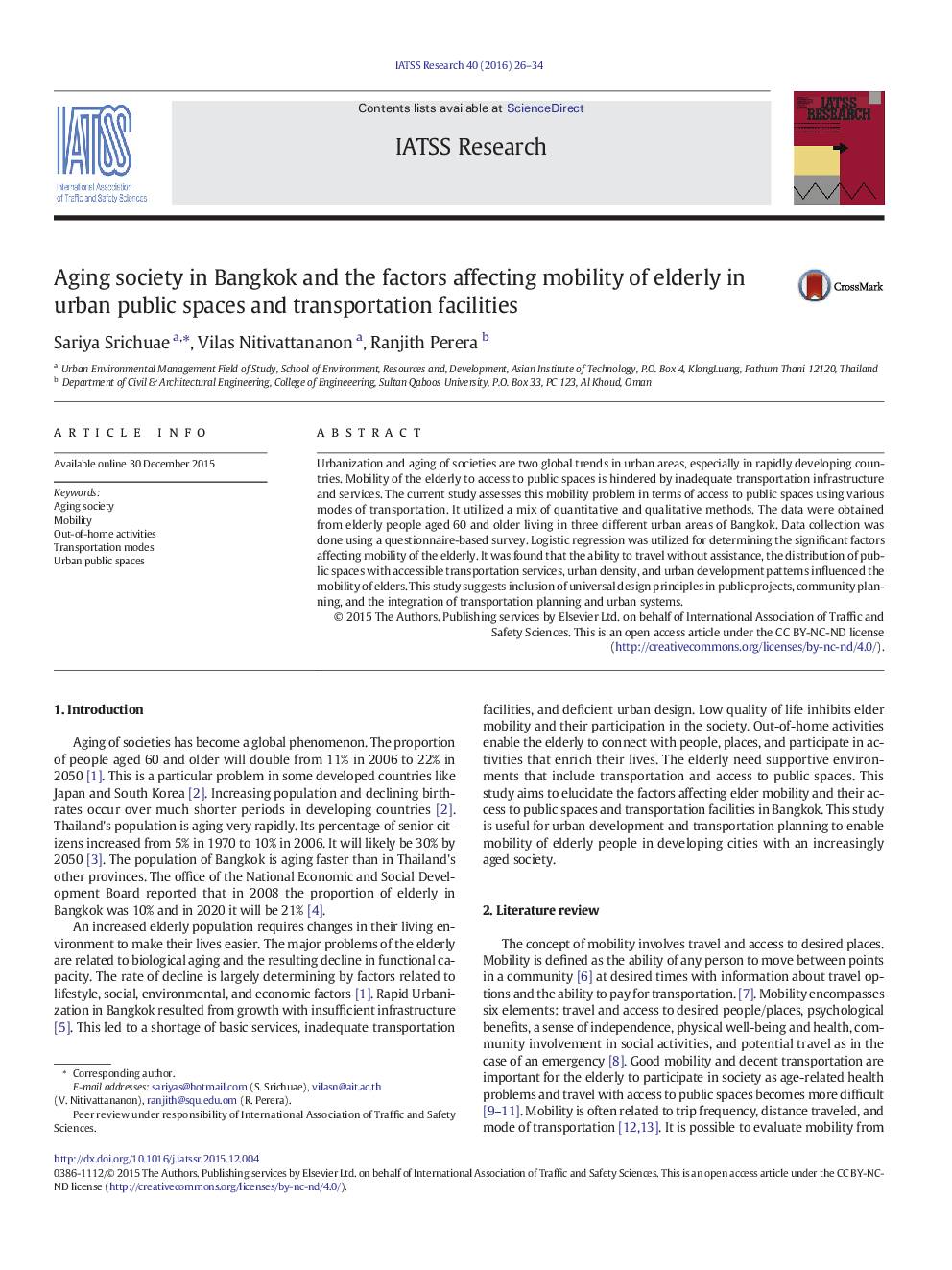| Article ID | Journal | Published Year | Pages | File Type |
|---|---|---|---|---|
| 1104565 | IATSS Research | 2016 | 9 Pages |
•Factors affecting elder mobility in Bangkok are independent mobility, public spaces distribution and urban spatial system.•Universal design practices in public projects can enable elder mobility.•Community planning should facilitate the elderly to engage in outdoor activities in public spaces closer to their homes.•Integration of transportation planning and urban spatial systems should be done to encourage elder mobility.
Urbanization and aging of societies are two global trends in urban areas, especially in rapidly developing countries. Mobility of the elderly to access to public spaces is hindered by inadequate transportation infrastructure and services. The current study assesses this mobility problem in terms of access to public spaces using various modes of transportation. It utilized a mix of quantitative and qualitative methods. The data were obtained from elderly people aged 60 and older living in three different urban areas of Bangkok. Data collection was done using a questionnaire-based survey. Logistic regression was utilized for determining the significant factors affecting mobility of the elderly. It was found that the ability to travel without assistance, the distribution of public spaces with accessible transportation services, urban density, and urban development patterns influenced the mobility of elders. This study suggests inclusion of universal design principles in public projects, community planning, and the integration of transportation planning and urban systems.
